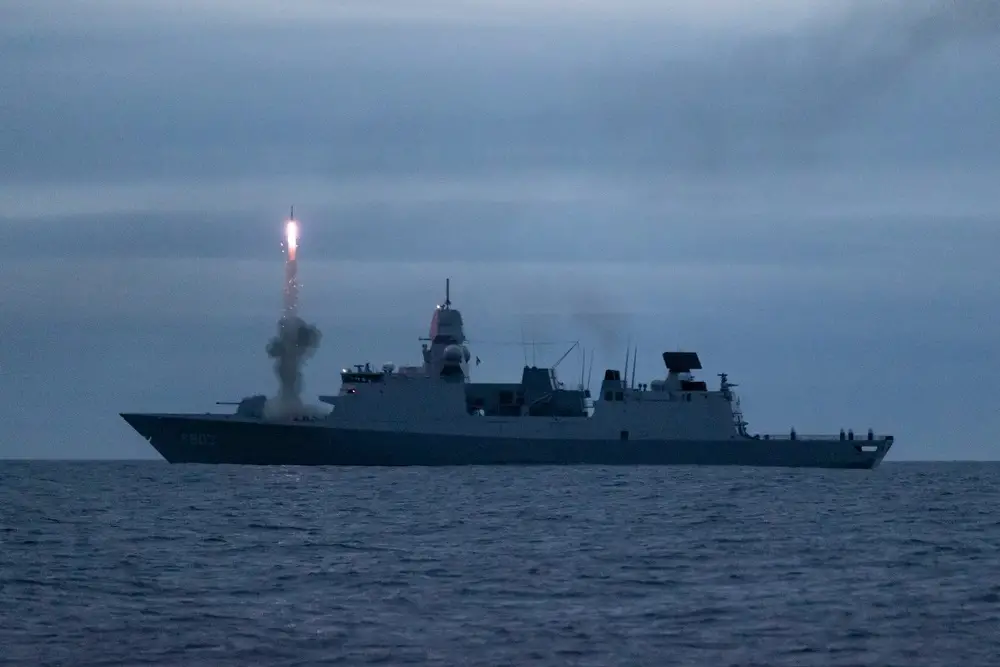The Dutch Ministry of Defence (Ministerie van Defensie; MinDef) has recently announced its plans to modernize the De Zeven Provinciën-class air-defence and command frigates (LCF). This modernization effort aims to enhance the frigates’ air defence capabilities and improve various onboard systems. The project will involve upgrades, replacements, and refurbishments of critical components on two frigates, while the remaining two will undergo general refurbishments. Let’s delve into the details of this important naval modernization program. The primary focus of the modernization effort will be to upgrade the air defence capabilities of the two selected frigates. The Dutch Ministry of Defence plans to equip these vessels with the advanced Raytheon ESSM Block 2 short-range missiles, known for their effectiveness in countering airborne threats. Additionally, the installation of RAMSys RIM-116 RAM missile launchers will further enhance the direct defence system of the frigates.
As part of the modernization process, the existing second-hand 127mm automatic guns OTO Melara Compatto, originally from Canadian modernised Iroquois-class destroyers, will be replaced. This move signifies the Dutch Ministry of Defence’s commitment to ensuring that the frigates are equipped with state-of-the-art weaponry. Furthermore, the frigates will be outfitted with the Kongsberg Defence & Aerospace NSM universal missiles, capable of engaging both naval and coastal targets. These missiles will replace the Boeing RGM-84F Harpoon Block 1D and the Raytheon Tomahawk missiles, augmenting the frigates’ offensive capabilities. The two frigates not undergoing full modernization but slated for decommissioning in 2032 and 2033 will still undergo refurbishments to improve general ship equipment. This includes updates to cooling systems, lifts, boilers, and fire-fighting systems, ensuring the vessels remain reliable and efficient until their eventual retirement.

Additionally, smaller electronic systems such as navigation radars, optoelectronic systems, and communication systems will be replaced. The project will also encompass network and computer system upgrades, including software updates, further enhancing the frigates’ overall operational effectiveness. The two frigates that receive the modernization upgrades are expected to be out of service for approximately one and a half years between 2024 and 2029. Once the modernization is complete, these vessels will boast enhanced air defence capabilities, improved offensive weaponry, and upgraded electronic systems, making them formidable assets in the Royal Netherlands Navy (Koninklijke Marine fleet. The remaining two frigates, which are scheduled for decommissioning at a later date, will still benefit from refurbishments. However, their focus will primarily be on general ship equipment and smaller electronic systems, ensuring they can continue to operate effectively until their planned retirement.
The four De Zeven Provinciën-class frigates are air-defence and command frigates in service with the Royal Netherlands Navy. The ships are similar to the German Sachsen-class frigates in role and mission. These ships were optimized for anti-aircraft warfare and command. For this role the ships are equipped with an advanced sensor and weapons suite. The primary sensors for this role are the long range surveillance radar SMART-L and the multifunction radar Active Phased Array Radar (APAR). The primary anti-aircraft weapons are the point defence Evolved Sea Sparrow Missile and the area defence RIM-66 Standard Missile (SM-2) Block IIIA. The Mk 41 Vertical Launching System is used to house and launch these missiles. 32 Evolved Sea Sparrow Missile and 32 Standard Missile SM-2 Block IIIA are carried. These ships were optimized for anti-aircraft warfare, but they also have weapons on-board capable of performing anti-surface and anti-submarine warfare, for example: the RGM-84F Harpoon missile and Mark 46 torpedoes.















